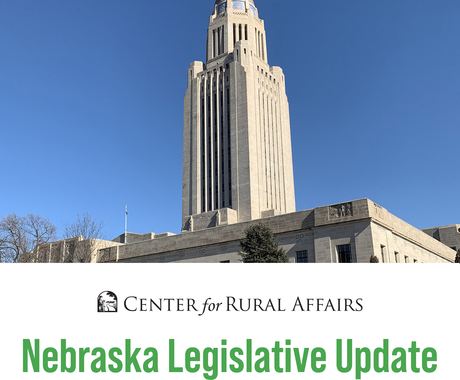The tax bill secured final passage just as we went to press with our January/February newsletter. The Center opposed the bill and we called on Congress to return the bill to committee for further debate and deliberation. In our initial review of the bill, a few provisions give us pause, including:
Tax cut for wealthiest estates
Under current law, a married couple can pass on $11 million of assets in their estate without paying any estate tax. The final bill that was approved will double the exemption to $22 million per couple. Even under current law, only 0.2 percent of estates pay any estate tax. Just 28 estates in our home state of Nebraska were subject to the tax in the last year.
Congressional leaders tout the estate tax roll back as a boon for small businesses and family farmers. In fact, it is a cut for the wealthiest individuals, and allows for a continued consolidation of wealth.
Tax bill triggers automatic cuts
Under existing budget sequestration rules, if Congress takes no action following the passage of the tax bill, countless federal programs could see automatic budget cuts as soon as 2018.
For example, $3.8 billion would be cut from farm bill programs including conservation, beginning farmer, and small town infrastructure programs. The Center will support congressional action to prevent automatic cuts to these programs that small towns and family farmers rely on.
Health care programs targeted
The final bill could trigger $25 billion in cuts to Medicare. Furthermore, by ending the individual mandate for health insurance, an expected 13 million low-income Americans will drop health coverage, leading to major reductions in tax credits designed to help working adults afford health insurance.
In our home state of Nebraska, it is estimated that the change will cause insurance premiums in the individual market to rise by more than $3,000 per year for a family of four. In rural areas, these cuts and coverage losses could imperil small town hospitals that operate on thin margins.
Cuts to corporate income tax permanent; cuts for individuals temporary
The final bill cuts corporate tax rates from 35 percent to 21 percent, and makes the cut permanent. For individuals, the final bill lowers rates and increases the standard deduction. However, the bill also eliminates the personal exemption and caps the deduction for state and local taxes at $10,000. The final impact on each household will be determined by how changes to deductions and credits apply to each particular situation. Some low and middle income households are expected to see an actual tax increase as a result of the bill. Furthermore, cuts for individuals expire after 2025, while corporate tax cuts remain in place.
These are just a few of the provisions that will affect rural people and small towns. We believe the final bill was hastily written and benefits the very richest individuals and corporations too much, while doing too little for everyday people and small town development.
There are innovative changes to our tax code worth considering. The Center supports proposals that use the tax code to promote investment in employer-owned small businesses, beginning farmers, and small town infrastructure. We will continue to look for opportunities to create a more just tax system that works for everyday people and rural places.




